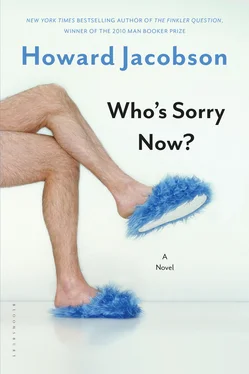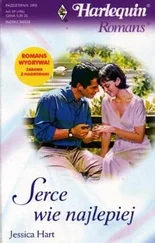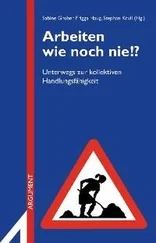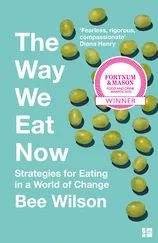She had refused pie. She had her figure to think of. Something annoyed Charlie about her employment of that word. Figure . His mother had been fond of the word figure. On his mother’s lips the shape it had made was formal and cold. On Hazel’s it was voluptuous. More voluptuous, all at once, than he cared to make mental room for.
As an atonement for not being able to find her on his lawn he made himself look at her arranging the flowers he had just bought her. She was still wearing the clothes she had been to visit her mother in, a too short Whistles skirt with a too deep slit, extravagantly decorated with pretend-old buttons and lace, a sexy play on the idea of old-fashionedness, soft on her hips, and a lovely bloody maroon flesh-responsive cardigan he had helped her choose, through which he could watch her nipples breathe. Ten minutes before, the sight of her had filled him with love. Desire, too, yes. Her legs so strong in those high strappy heels. Her prodding chest. Eyes in the wrong place. But first and foremost love. ‘I’ve missed you.’ There was the problem, right there! ‘I’ve missed you.’ He had forgotten what all this was supposed to be about. He hadn’t originally gone to her for love. He hadn’t originally been looking for love. He already had love . Love was what he’d swapped with Kreitman, who had something else. If he’d merely swapped love for love, he had let a few people down, had he not? In the time it took him to revisit his garden, in less time than it took him to finish his pie, he had come down from love to fondness — another commodity he hadn’t been in the market for — from fondness to consideration, and from consideration to pity.
No sight in creation looks more dolorous to a man than a woman in the fullness of her sensuality and glamour, once you have allowed pity to play a part in your appreciation of her. In restitution for which dishonour — and this explains the terrible spiral of the sexual affections once they start to tumble — you can do nothing except pity her some more.
This will pass, Charlie told himself. Don’t give in to this. But he was filled with an unassuageable yearning to be back on his lawn in Richmond, bouncing his children who were no longer children on his knee, telling them mad stories, pouring lukewarm retsina, and Chas in her comical turban, up to her elbows in flour.
‘One of the nice things about the relations between our familes,’ Charlie had once said to Kreitman, in the days when they lunched together in Soho, ‘is that our children get on so well.’
‘You think so,’ Kreitman had replied. He had always hated this kind of talk. ‘Don’t you think that’s just because they’re all drug addicts? In fact, they wouldn’t know whether they were getting on or not. They merely supply one another.’
‘Just a stage,’ Charlie said. ‘Like us and rock and roll.’
‘Charlie, what are you talking about? You were about as interested in rock and roll as I was in motor racing. Name me a rock band.’
‘I mean our generation.’
‘I tell you what I don’t get,’ Kreitman said, ‘if you’re going to talk about generations, I don’t get what’s happened to the principle of taking turns. Rock and roll I don’t remember, Charlie, but I do know that we were in awe of seniority when we were young, that however much we rebelled on the surface we deferred in our hearts, so how come, since what goes around is supposed to come around, that this latest batch isn’t in awe of us? Neither on the surface nor under it. I feel cheated, Charlie. I feel cheated of my turn.’
‘Try being friends with them instead, Marvin. The wise thing is to take what’s on offer. We gave awe, this generation gives informality.’
‘I don’t want to be informal with kids. I want them to keep their distance.’
‘Unless they’re girls …’
Two old friends, one steadfastly in love with the same woman all his married life, one not, meeting regularly to decide who was the unhappier and then losing their nerve.
But Charlie had been right about what was nice about relations between the two families — the children did get on well together.
Back from Thailand, Cressida and Juliet Kreitman went clubbing with Kitty and Tim Merriweather even before they had that long-promised dinner with their father.
‘So fill us in. Who’s doing what to whom this time?’ Juliet wanted to know.
‘Can’t we talk about something else,’ Timmy said. ‘Did you find the beach?’
They were in a queue on Wardour Street, waiting to pass muster, not more than a few yards, had they but known, from the place where Nyman knocked down Kreitman and did all their brains in.
‘The beach is for later,’ Cressida said. ‘I just want to know how we can get your dad out of his shitty old dressing gown.’
‘We don’t have a dad,’ Kitty said.
‘What I just want to know,’ Timmy added, ‘is how we can get your dad out of our mum.’
‘OK,’ Cressida said, ‘so we won’t talk about it.’
And an hour later they were doing what they’d come for and wiping out every invidious recrimination, and all other invasive passions to boot, to the music of ferroconcrete robots trying to do the same.
What Nyman was hoping to wipe out in a club whose upper age limit was nineteen on an old night is harder to say. Tim had several times proposed meeting there for a Friday rave, but he hadn’t really expected Nyman to show. People from the box had other people from the box to hang out with. Yet here he was, looming out of the prison-yard lighting like a fugitive, a back-to-front baseball cap on his head, a PVC rucksack on his shoulders, a water bottle with a pump and a phosphorescent straw in it round his middle, and glitter on his eyelids. ‘Gotcha!’ he said to Tim, catching him round the chest but not breaking the rhythm of his dance.
Timmy danced like a National Theatre production of Marat/Sade , the inmates of the asylum at Charenton, doubly demented. Nyman did rhapsodic — slow, corkscrew unravellings, as though confined genie-like within a narrow-necked bottle, with a touch of the shaven-headed East. Were the Dalai Lama to have danced, and upon a pinhead, he would have danced like Nyman.
‘So who’s your brother’s spiritual friend?’ Cressida screamed into Kitty’s ear.
And that was how the Kreitman girls got to have their turn with Nyman, as they explained to their more than usually preoccupied father over dinner at a starry restaurant a decent distance from the Ritz.
‘You know who this is you’re telling me about?’ Kreitman wanted to be sure.
‘Yeah, we know all about the bicycle,’ Juliet said. ‘ Alles ist klar .’
‘He told you he’s German?’
‘I can’t remember if he did or not. But he looks German.’
‘He also looks a faggot.’
‘I don’t think so, Daddy,’ Juliet said.
‘Did he squeak his eye sockets for you?’
‘He hasn’t so far.’
‘He will. Just stay away from him.’
The girls laughed. For as long as they could remember, their father had told them to stay away from everyone. It was his idea of setting a good example and ruling with a rod of iron. Once he’d said ‘Stay away’ he felt he had done his duty and could get on with what interested him more.
‘So you and Aunty Chas …’ Cressida ventured, when the time seemed right.
‘I know what you must be thinking,’ Kreitman said.
Their conversation was interrupted when a woman Kreitman knew to be celebrated for something or other, just don’t ask him what, begged Juliet and Cressida for their autographs. Not the starry thing to do, but there you had it. Today, even the famous were exercised by fame. She had seen their picture in a colour supplement. Relative Values or Sibling Rivalry — one of those. And she knew Cressida’s work. Cressida’s what ? Kreitman thought. He rolled his eyes. He had famous daughters. How could this be? He had fed them warm bottles while Hazel tried to get some sleep, then he had turned away for five minutes and now they were famous. He remembered their inky fingers and their school reports, commenting on their appalling handwriting, a fault inherited from their mother. Now they outdid each other for elegant flourishes and the size of their Mont Blancs.
Читать дальше












